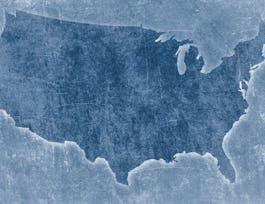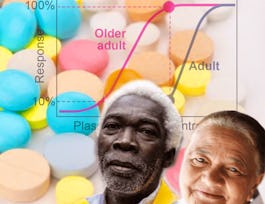This MOOC is the first of its kind, since it addresses critical issues related to drugs from a multidisciplinary, health and human rights-based approach. Throughout the course you will cover a range of questions including what are drugs and why they controlled? What are the benefits and harms of taking drugs? How public health policies can address drug use?


Drugs, drug use, drug policy and health
Taught in English
Some content may not be translated
33,594 already enrolled
(247 reviews)
Details to know

Add to your LinkedIn profile
19 quizzes
See how employees at top companies are mastering in-demand skills


Earn a career certificate
Add this credential to your LinkedIn profile, resume, or CV
Share it on social media and in your performance review

There are 6 modules in this course
Welcome to Module 1! This week's material starts by looking at seemingly simple questions such as : « what are drugs ? » and « why do people use drugs ? » It then addresses the question : « why are drug internationally controlled ? » As you will see the answer to this question constitutes one of the founding blocks of the rest of this course. You will learn what legal elements make up the international drug control framework and what that means for countries putting in place different drug policies around the world. Once you have finished this week, you will be able to: explain what drugs and controlled substances are; describe the main elements of the International Drug Control Framework and recognize the diversity of national drug policies under a unique International Drug Control Framework. We hope that you are prepared to work through the interesting and wide-ranging material we have prepared for you. We also encourage you to stop and answer as many of the in-video (or stand-alone) reflective questions we have placed throughout the week, and look forward to receiving any feedback you may have for us! Have a great first week learning about drugs and the international drug control framework! Best wishes,The Drugs, Drug Use, Drug Policy and Health team
What's included
10 videos5 readings4 quizzes2 discussion prompts
Welcome to Module 2 ! This week is all about epidemiology and drug use. Indeed, it seems pretty obvious that when looking at drug use around the world, we need to know what we are talking about ; but as you will see, for various reasons, it isn’t always that easy. You will also hear from people who use drugs, telling you about the stigmatisation they often face as well as from scientists who will share their knowledge about how drugs should be classified according to their harms and what the benefits and harms of taking certain drugs are. You will also learn what dependence really means and what health-related issues can sometimes arise with certain drugs and forms of drug use. By the end of the Module you will be able to : • Recall facts, figures and misconceptions about drug use; • Categorize drugs and their relative harms; • Describe problematic drug use and dependence and their negative consequences for individuals and the community. Don’t forget to have a look at the additional optional resources. We hope this week challenges a number of ideas you may have about drug use and their benefits and harms for example; and that you learn a lot about questions related to drugs and health. Best wishes,The Drugs, Drug Use, Drug Policy and Health team
What's included
10 videos2 readings4 quizzes1 discussion prompt
Welcome to Module 3 which focuses on public health, harm reduction and treatment. In this Module you will see how public health policies address drug use ; become familiar with various harm reduction concepts and tools and learn a bit about the history as well. You will learn a lot about harm reduction itself, seeing how it can fit into existing health policies and look at how policies can include prevention, harm reduction and treatment in a complementary fashion. By the end of the Module you will be able to : • Recall the concepts and list the tools of harm reduction.• Assess treatment options for dependence• and Explain how prevention, harm reduction and treatment complement each other.We hope this week will provide you with a good sense of what harm reduction is and how it fits within wider public health–oriented policies. This week also builds on what you have learnt in Module 2, with regard to certain health issues and looking at when treatment for dependence may be necessary. Don’t forget to go through the essential reading list and look at the optional additional resources. Best wishes,The Drugs, Drug Use, Drug Policy and Health team
What's included
11 videos3 readings3 quizzes3 discussion prompts
Welcome to Module 4 which looks at questioning prohibition-based policies. In this Module, you will discover that most drug policies in the world are based on prohibition law enforcement and criminalization of drug use ; and see that such policies have a number of negative consequences on people’s health as well as on their human rights. This Module will also look at law enforcement more closely and reveal how it can cooperate to improve health. You will learn about the human rights framework and the drug control framework and see what human rights violations, stemming from the implementation of prohibitionist drug policies, look like around the world. Finally, you will also see that drug policies are connected to development and the environment, most often not in a good way, with prohibition fueling violence, crime and corruption and impeding development. By the end of this Module you will be able to: • Evaluate the extent to which prohibition-based policies have succeeded or failed in reducing drug production, trafficking and consumption; • Describe the negative impacts of prohibition-based policies on health, human rights and development; • Recall how prohibition-based policies fuel organized crime and trafficking. We hope this week will provide you with valuable insight into the reality of prohibitionist drug policies, for people in communities all over the world ; and help you see what have been the consequences of these policies, in terms of their impact on human rights, health and development. We also hope you enjoy the essential reading and optional additional resources we have prepared for you. Best wishes,The Drugs, Drug Use, Drug Policy and Health team
What's included
20 videos2 readings2 quizzes3 discussion prompts
Welcome to Module 5 which looks at access to controlled medicines. During this week, you will learn how the international scheduling of drugs works; be presented with some of the main barriers to access to essential medicines and look specifically at the case of the opioid epidemic which is ravaging through the United States at the moment. The medical use of cannabis and cannabinoids is also a highlight of this week and one that is particularly relevant in a number of countries around the world at present. By the end of this Module you will be able to: • Describe the scheduling of controlled medicines; • Recognize the barriers to access to controlled medicines and discuss the challenges posed by prescription drugs epidemics; • and examine the current issues around the medical use of cannabis and cannabinoids. We hope you enjoy this week, which is slightly different to the other Modules in terms of its specific topic but adds a lot of important information in terms of understanding the international drug control framework and issues related to drugs, drug use and policies as well as possible. Best wishes,The Drugs, Drug Use, Drug Policy and Health team
What's included
7 videos2 readings5 quizzes
Welcome to Module 6! Congratulations, you have made it to the last Module of the Course! This week focuses on how prohibitionist drug policies have failed and how it is time for drug policy reform. Some highlights include decriminalisation, legalisation and regulation being broken down for you, so that you really understand what the terms mean and how countries can move towards them in terms of drug policy goals. A big part of this Module also concentrates on how to get involved in the drug reform movement: you will hear from people who have intimate experience with this: from civil society actors working in the field to networks of people who use drugs; before being able to you, yourself think about how and what you could do to join the drug reform movement. By the end of this Module you will be able to: • Give examples of decriminalization and regulation of drugs and discuss outcomes; • Defend the involvement of civil society and people who use drugs in the design and evaluation of drug policies; • Reflect on and develop your potential role in the world drug debate.The final evaluation will consist of a peer – review, during which you will have the possibility to think about how what you have learnt throughout the course applies to the situation in your own country with regard to drug policy (specifically in relation to protecting human rights and promoting health); and to reflect on how people who use drugs are perceived and/or treated and consider what role you could play in this possible reform. Please don’t forget to go through the essential reading list and some of the optional additional resources available to you. We hope you have enjoyed the six Modules and look forward to receiving your peer-evaluations as well any feedback you may have. Best wishes,The Drugs, Drug Use, Drug Policy and Health team
What's included
13 videos2 readings1 quiz1 peer review1 discussion prompt
Instructors



Offered by
Recommended if you're interested in Public Health

Johns Hopkins University

Johns Hopkins University

Icahn School of Medicine at Mount Sinai
Why people choose Coursera for their career




Learner reviews
Showing 3 of 247
247 reviews
- 5 stars
81.78%
- 4 stars
13.76%
- 3 stars
3.23%
- 2 stars
0.40%
- 1 star
0.80%
New to Public Health? Start here.

Open new doors with Coursera Plus
Unlimited access to 7,000+ world-class courses, hands-on projects, and job-ready certificate programs - all included in your subscription
Advance your career with an online degree
Earn a degree from world-class universities - 100% online
Join over 3,400 global companies that choose Coursera for Business
Upskill your employees to excel in the digital economy
Frequently asked questions
Access to lectures and assignments depends on your type of enrollment. If you take a course in audit mode, you will be able to see most course materials for free. To access graded assignments and to earn a Certificate, you will need to purchase the Certificate experience, during or after your audit. If you don't see the audit option:
The course may not offer an audit option. You can try a Free Trial instead, or apply for Financial Aid.
The course may offer 'Full Course, No Certificate' instead. This option lets you see all course materials, submit required assessments, and get a final grade. This also means that you will not be able to purchase a Certificate experience.
When you purchase a Certificate you get access to all course materials, including graded assignments. Upon completing the course, your electronic Certificate will be added to your Accomplishments page - from there, you can print your Certificate or add it to your LinkedIn profile. If you only want to read and view the course content, you can audit the course for free.
You will be eligible for a full refund until two weeks after your payment date, or (for courses that have just launched) until two weeks after the first session of the course begins, whichever is later. You cannot receive a refund once you’ve earned a Course Certificate, even if you complete the course within the two-week refund period. See our full refund policy.




